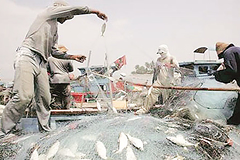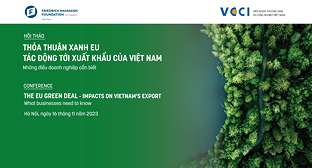Why India hardened its stance on fishery subsidy at World Trade Organization
27/12/2017 12:00

India has toughened its stance at the World Trade Organization (WTO) on the issue of fishery subsidies, mindful of the politically-sensitive subject on which the lives of millions of poor fishermen in various coastal states depend.
India has toughened its stance at the World Trade Organization (WTO) on the issue of fishery subsidies, mindful of the politically-sensitive subject on which the lives of millions of poor fishermen in various coastal states depend. The country now wants subsidies to be allowed for fishing up to the exclusive economic zones (EEZ), generally extending up to 200 nautical miles from a country’s coastline, and not just up to the territorial waters (up to 12 nautical miles from the baselines), sources told FE. This will have a bearing on the ongoing negotiations on discipline on fishery subsidies at the WTO, on which a work programme was proposed at the recently-concluded ministerial in Buenos Aires to reach a decision by the next ministerial in December 2019. India’s stance stems from the fact that while it gives very limited subsidies to fishermen, much lower than the rich countries, it feels developing nations must get substantive special and differential treatment on this issue, given the imbalance between the developed and the developing countries. Also, such special treatment must be delinked from the complex issue of fisheries management, something that some rich players like the EU are trying to link.
As such, according to Article 56(1)(a) of the United Nations Convention on the Law of the Sea, a coastal state has the right to harvest fish and other marine creatures and to prospect for any oil and mineral lying beneath or on the seabed within the EEZ. Highlighting the need for special treatment for developing nations, a Centre for WTO Studies paper by Radhika Kumar says: “The disciplines on fisheries subsidies have a market access agenda and a clear commercial interest of selected developed countries. Therefore, developing countries need to ensure that the history of the imbalance suffered from the disciplines on agriculture subsidies during the Uruguay round is not repeated in fisheries subsidies.”
The disciplines on fisheries subsidies should ensure that stringent conditions are not imposed on developing countries so as to deter their ability to develop their fisheries sector and enter the fisheries market, said Kumar. While countries like those in Europe and New Zealand have provided huge, specific subsidies to develop their fleets, they have now shifted these specific subsidies into non-specific budgetary support. Should there be restrictions on specific subsidies alone, there would be an imbalance created once again and such developed countries will stand to gain, a fact developed countries must keep in mind while negotiating, she said. According to the paper, over 75% of the global fish produce is used for direct human consumption. Fish is also used as an input for fishmeal and animal feed for livestock. Its by-product is used to produce fish oil, a rich source of omega-3. The global market for just fishmeal and fish oil is projected to touch $14.28 billion by 2022.
Source: Financial Express
Các tin khác
- More efforts needed to maintain export growth to China: Insiders (24/04/2024)
- Shadow trade minister calls for greater focus on removal of Chinese trade barriers (24/04/2024)
- New U.S. Solar Panel Tariff Intensifies Sino-American Green Tech War (24/04/2024)
- It is expected that there are higher orders and revenue in the second quarter from European businesses (24/04/2024)
- U.S. Ceramic Manufacturers Seeking Tariffs Against Indian Import (24/04/2024)
 Home
Home
 About Us
About Us




















